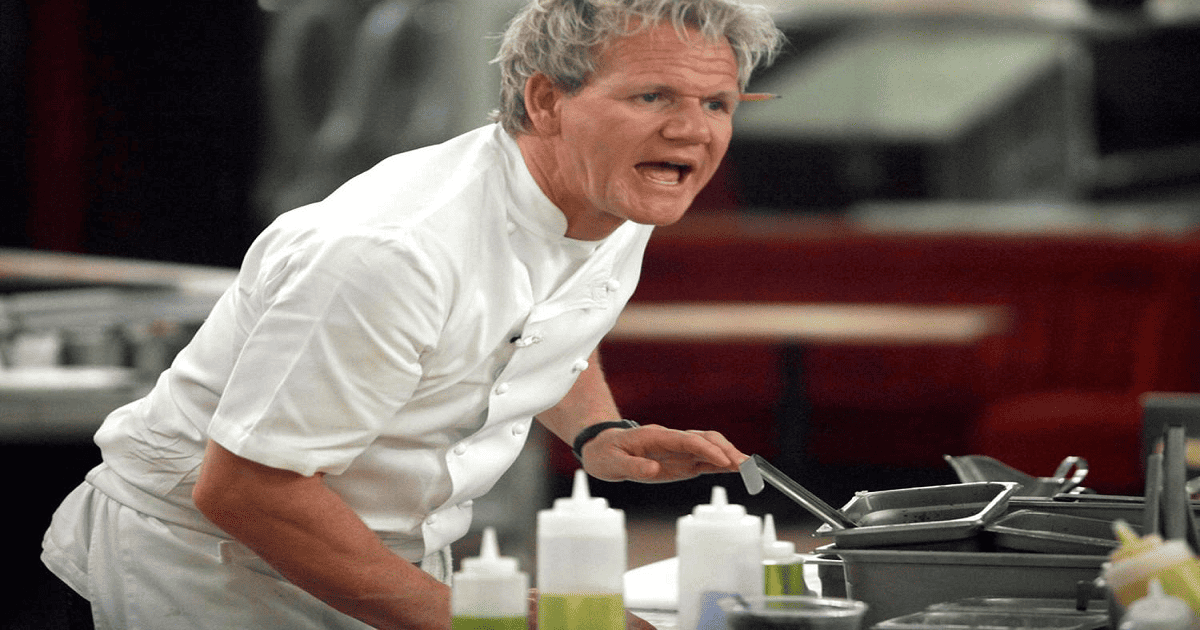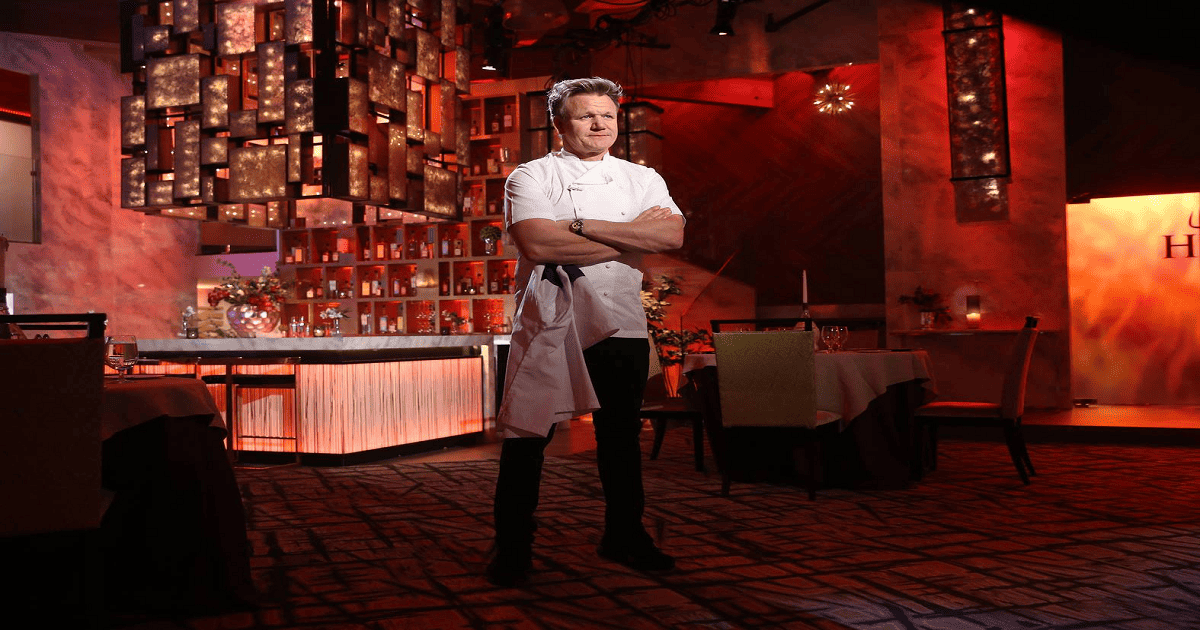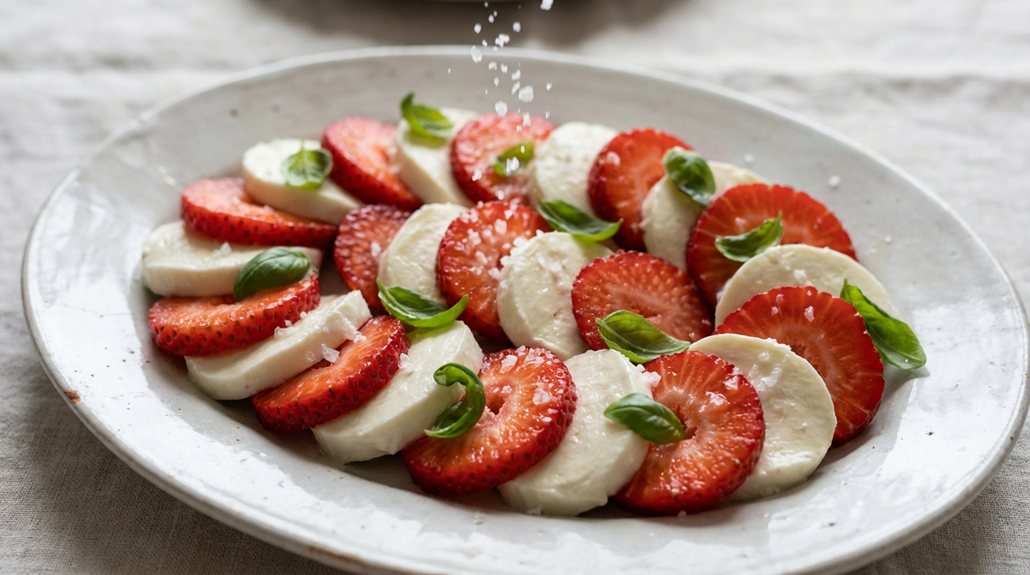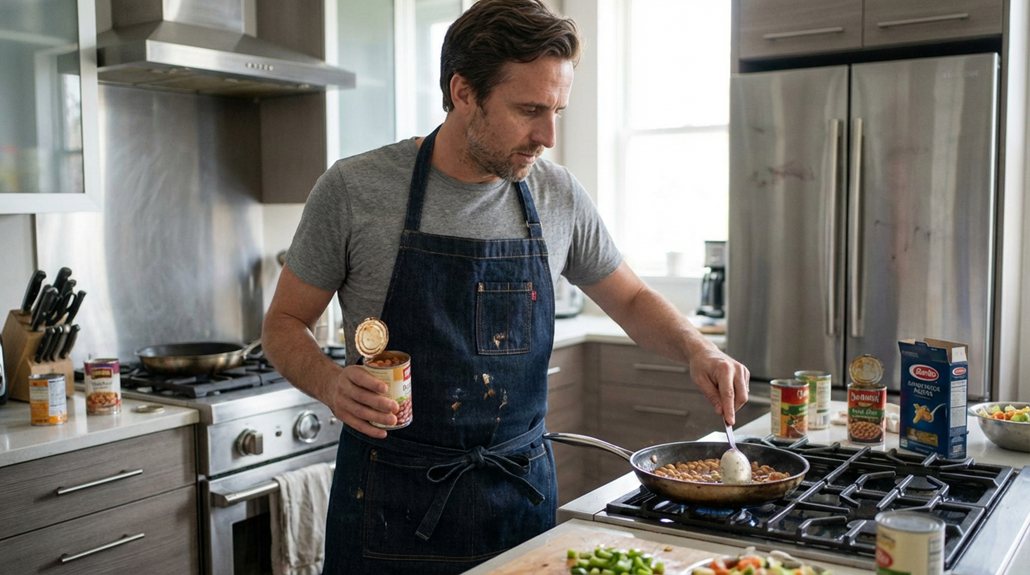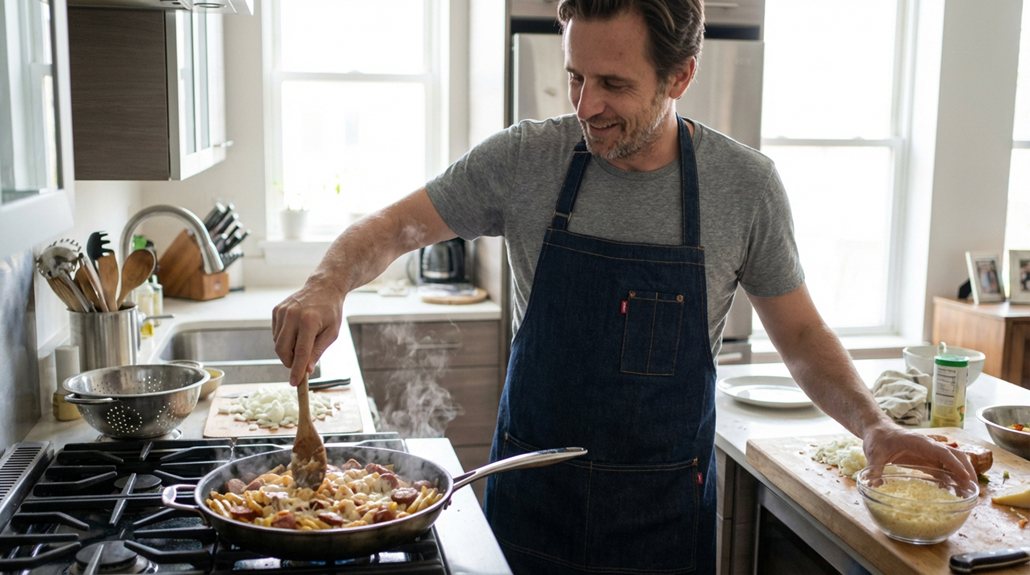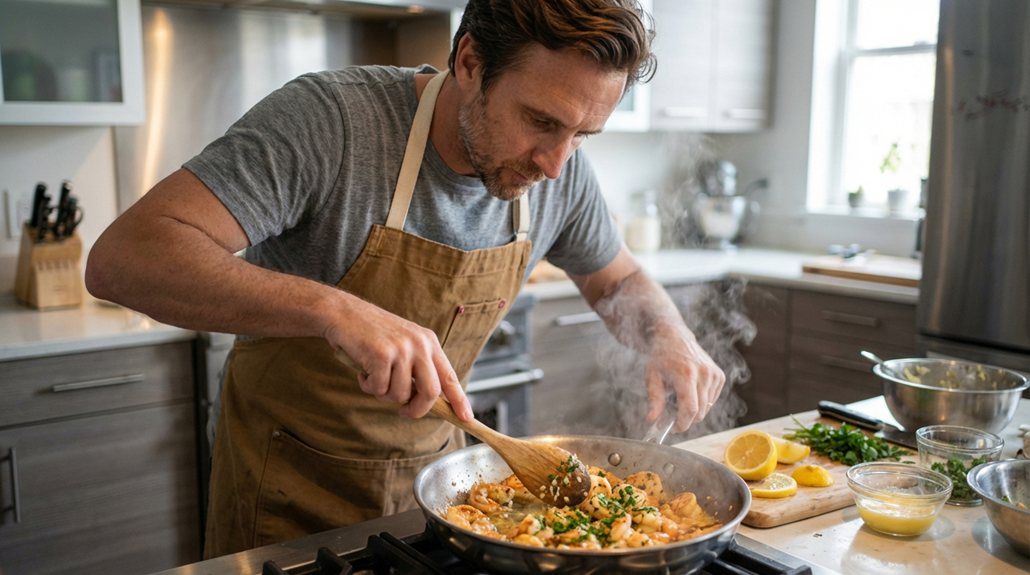Like a master painter with a kitchen for a canvas, Gordon Ramsay crafts culinary masterpieces with a bold stroke. He’s taken the world by storm, earning Michelin stars and capturing audiences on TV.
Ramsay’s no-nonsense approach in the kitchen reflects his passion for food and his dedication to excellence. He’s a chef who believes in the freedom of creativity, using fresh ingredients to make dishes that speak for themselves.
Whether running world-class restaurants or mentoring on ‘MasterChef,’ he’s about giving people the tools to unlock their potential. Gordon Ramsay isn’t just a chef; he’s a beacon for anyone who aspires to turn their passion into achievement.
Key Takeaways
- Gordon Ramsay has earned multiple Michelin stars for his restaurants, showcasing his culinary expertise and signature dishes.
- Ramsay has significantly impacted television with his fiery mentorship on shows like ‘Hell’s Kitchen‘ and his cooking prowess on ‘MasterChef.’
- He imparts his knowledge and skills through mentorship and masterclasses, sharing insider tips and techniques for classic dishes.
- The Ramsay family members are each on their unique journeys of ambition and resilience, with achievements such as college graduation, sobriety, and joining the Royal Marines.
The Journey of a Michelin-starred Chef
Within the culinary world, Gordon Ramsay’s ascent to becoming a Michelin-starred chef is marked by his relentless pursuit of excellence and innovation in the kitchen. Starting at Aubergine in London, he quickly earned two Michelin stars. By 35, his establishment, Restaurant Gordon Ramsay, clinched three stars. This feat placed him among an elite few in the UK and spotlighted Gordon Ramsay restaurants as pinnacles of gastronomy.
Ramsay’s Restaurant Group expanded globally, from the bustling streets of Singapore to the vibrant cities of the United States, Dubai, and the UK. His seven Michelin stars underscore the breadth of Gordon Ramsay’s culinary empire. Ramsay’s signature dishes consistently wow diners, reinforcing his status as a top-tier Michelin-starred chef, beloved for his craft and commitment to culinary freedom.
The Foundations of Ramsay’s Restaurant Group
The establishment of Gordon Ramsay Restaurants was a testament to Ramsay’s ambition, swiftly transforming his culinary vision into a global empire. Beyond his accolades as a celebrity chef-restaurateur, Ramsay’s ventures have captivated audiences with:
- His fiery mentorship in Hell’s Kitchen
- Cooking prowess showcased on MasterChef
- Troubleshooting expertise in Kitchen Nightmares
These ventures mirror the high standards within his restaurant group. Ramsay’s masterclasses further demystify gourmet cooking, empowering fans with the skills to explore culinary freedom. His leadership in the kitchen and on screen hasn’t only shaped his business but inspired a cultural shift towards refined, accessible gastronomy.
Ramsay’s Culinary and Television Ventures
Gordon Ramsay’s culinary empire extends beyond his seven Michelin stars. He has also crafted a distinct presence on television with hit series like ‘Hell’s Kitchen‘ and ‘MasterChef.’ This British television presenter has become a household name, not just for his cooking but for his on-screen charisma.
He takes aspiring cooks to new heights on ‘Next Level Chef,’ showing that dining with Gordon Ramsay isn’t just about the food; it’s an experience. Off-screen, Ramsay’s family, including his son Oscar Ramsay, is part of his world, reflecting a man who’s passionate about his craft both at home and in the public eye.
His ventures showcase a blend of culinary mastery and entertainment, offering freedom to explore flavors and food narratives.
Embracing the Role of Mentor Through Masterclasses
Expanding on his culinary empire, Ramsay now imparts his hard-earned wisdom through masterclasses, nurturing the next wave of chefs with hands-on guidance and expert instruction. He’s all about giving folks the keys to unlock their kitchen potential. It’s not just about recipes; it’s about fostering freedom in the kitchen.
Masterclasses offer:
- Techniques to tackle classic dishes like beef Wellington
- Insider tips only a seasoned chef could share
Family inspiration:
- Tana Ramsay’s support fuels his mentorship role
- Megan, Holly Anna, and Jack Scott Ramsay embody the spirit of learning he encourages
His approach is straightforward: learn by doing, cook passionately, and don’t fear taking risks. It’s all about the thrill of creation and the joy of sharing it.
A Glimpse into the Ramsay Family
Delving into the Ramsay household, we discover a dynamic family where each member reflects Gordon’s passion for excellence and a zest for life. They’re not just bystanders to his fame; they’re achievers in their own right, carving paths that mirror the freedom and determination Gordon embodies.
| Name | Endeavor | Milestone |
|---|---|---|
| Megan Ramsay | College Graduate | Celebrated Graduation |
| Holly Ramsay | Mental Health Advocate | One Year of Sobriety |
| Jack Ramsay | Royal Marines | Joined October 2020 |
| Tilly Ramsay | Culinary Artist | ‘Tilly’s Kitchen Takeover’ |
Each Ramsay is on a unique journey, yet a shared narrative of ambition and resilience unites them. Gordon’s spirit of freedom and excellence runs deep in the family.
Expanding the Empire: Next Level Chef and Beyond
He’s elevating culinary competition to unprecedented heights with his latest venture, ‘Next Level Chef.’ Gordon’s not just about high-end dining; he’s branching out, tapping into new arenas where foodies and fans can engage with his brand. Here’s a taste of his ever-growing empire:
- Next Level Chef
- A fresh take on cooking contests
- Captivating audiences with innovative challenges
- Beyond the Kitchen
- ‘Gordon Ramsay Chef Blast’ game for mobile fun
- Gordon Ramsay Academy for aspiring chefs
He’s not confining his talents to the stove. Whether it’s in your living room or on your phone, Gordon’s offering a slice of his culinary genius. And for those dreaming of chef’s whites, his academy’s doors are open. This is freedom to explore, create, and taste – the Ramsay way.
Crafting Signature Dishes That Tell a Story
Beyond his ventures in television and education, Gordon Ramsay’s kitchen mastery comes to life through his signature dishes, each telling a unique story of his culinary journey. Ramsay’s creations are more than just meals; they’re a window into his world, crafted with a blend of tradition and innovation.
He’s not just cooking; he’s sharing chapters of his life, one plate at a time. With each bite, diners taste the passion and history-shaping their career. Ramsay ensures every dish has its narrative, inviting guests to be part of the experience.
It’s not just about eating; it’s about connecting with the story behind the flavors, making dining a journey.
Savoring the Exclusive Experience of Dining with Gordon Ramsay
While Gordon Ramsay’s signature dishes offer a taste of his culinary narrative, experiencing a meal at one of his acclaimed restaurants fully immerses him in the exclusivity and mastery of his cooking.
Diners seeking freedom from the ordinary revel in the chance to:
- Enjoy private dining for that personal touch
- Intimate settings for special occasions
- Tailored menus that cater to discerning tastes
- Gift unique culinary experiences
- Masterclasses in signature dishes like beef Wellington
- Workshops that delve into the art of fine dining
Eating at a Ramsay establishment isn’t just a meal; it’s an event that liberates the palate. It’s a chance to break free from the everyday and indulge in a world-class dining adventure masterminded by one of the most celebrated chefs of our time.
Frequently Asked Questions
How Does Gordon Ramsay Maintain His Wellbeing and Handle Stress From His Demanding Career?
He balances his time between two homes, finds joy in cooking, diversifies with lifestyle products, and engages in philanthropy, which all help him manage stress and maintain wellbeing in his high-pressure career.
What Are Some Lesser-Known Hobbies or Interests That Gordon Ramsay Pursues Outside of His Culinary and Television Endeavours?
He’s into marathons and soccer, often playing in charity matches. He cherishes family time and actively supports mental health. His philanthropy extends to children’s healthcare through his foundation’s partnership with hospitals.
How Has Gordon Ramsay’s Approach to Food and Cooking Evolved Over the Years, Considering Changing Dietary Trends and Sustainability Issues?
He’s adapted to new trends by incorporating vegan dishes and sustainable ingredients. His restaurants now offer casual dining and global flavors, and he advocates for eco-friendly cookware, showing a commitment to environmental responsibility.
What Role Does Technology Play in Gordon Ramsay’s Restaurants and Culinary Practices?
Technology enhances culinary experiences, streamlines operations, and engages customers through interactive menus, social media, and online tutorials, offering freedom to explore new dining concepts and cooking techniques from anywhere.
Can Gordon Ramsay Share an Experience That Significantly Changed His Perspective on Cooking or Hospitality?
He can share transformative experiences. Early on, a chef’s outburst taught him respect’s value in the kitchen, fundamentally changing his approach to cooking and shaping his career’s success.
Final Thoughts
Gordon Ramsay’s journey from a fiery chef to a culinary icon is unmatched. His Michelin-starred mastery of hit TV shows and global restaurant empire inspire food lovers everywhere. He’s shaping the next wave of chefs as mentors while his family and philanthropy ground his ambitions.
Ramsay invites diners into an exclusive world with every dish, crafting memorable experiences long after the last bite. The Ramsay legacy continues to grow, setting new milestones in the culinary saga.
